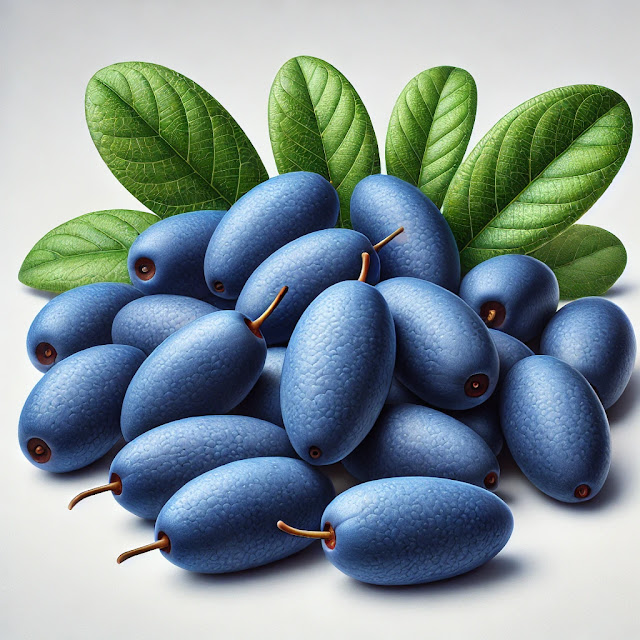Apricot: The Golden Fruit That Packs a Nutritional Punch
Overview:
The apricot, with its smooth golden-orange skin and sweet, slightly tangy flavor, is a beloved fruit in many cultures. Known for its juicy texture and delightful taste, apricots are a summer favorite, offering a perfect balance of flavor and nutrition. Whether eaten fresh, dried, or used in cooking, apricots provide a wealth of health benefits and versatility in culinary applications.
Calories and Key Nutrients (per 100g):
A 100g serving of apricot contains about 48 calories, making it a low-calorie fruit packed with essential nutrients. Apricots are rich in vitamin A, particularly in the form of beta-carotene, which is crucial for eye health. They also provide a good source of dietary fiber, vitamin C, and potassium. Compared to fruits like peaches or nectarines, apricots have slightly higher levels of fiber and vitamin A, making them a great choice for supporting vision and digestive health.
Health Benefits:
Apricots are a nutritional powerhouse, offering several key health benefits. The beta-carotene in apricots helps improve vision and supports skin health by promoting cell regeneration. Vitamin C acts as an antioxidant, protecting the body from oxidative stress and boosting the immune system. Additionally, apricots’ high fiber content supports digestion, helping to prevent constipation and promote gut health. The potassium in apricots aids in maintaining healthy blood pressure levels and supporting cardiovascular function.
Proper Consumption Methods:
Apricots can be enjoyed fresh as a light and refreshing snack. Simply wash the fruit, slice it, and remove the pit. They are also delicious when added to fruit salads or blended into smoothies for a nutritious boost. In cooking, apricots can be stewed, baked into desserts, or used in savory dishes like tagines for a sweet and savory flavor combination.
Tasty Ways to Eat Apricot (Recipes):
A popular way to enjoy apricots is to make apricot jam. Simply simmer fresh apricots with sugar and lemon juice until thickened, and you’ll have a delicious spread for toast or pastries. Another simple recipe is an apricot and almond salad, where fresh apricots are combined with mixed greens, slivered almonds, and a light vinaigrette for a refreshing summer salad. For dessert lovers, apricot tarts or crumbles make for a delightful, tangy treat.
Cautions When Eating Apricot:
While apricots are generally safe for most people, the pits contain a compound called amygdalin, which can release cyanide when ingested. Therefore, it’s important to avoid eating the pits. Additionally, dried apricots can be high in sugar and should be consumed in moderation, especially for individuals managing their blood sugar levels.
Comparing Apricot to Other Fruits:
When compared to peaches or plums, apricots stand out for their higher beta-carotene and fiber content. While peaches offer more vitamin C, apricots provide a higher concentration of vitamin A, making them particularly beneficial for vision and skin health. Both apricots and plums are rich in antioxidants, but apricots’ lower sugar content makes them a better choice for those seeking a more balanced snack.
Who Should Eat Apricot and Who Should Avoid It:
Apricots are a great fruit for athletes or individuals looking to boost their potassium intake, as they help replenish electrolytes lost during exercise. The fiber in apricots makes them ideal for those seeking to improve digestive health. However, people with sensitivities to stone fruits or those with allergies to related fruits such as peaches should consume apricots with caution.
Interesting Stories or Facts:
Did you know that apricots have been cultivated for over 4,000 years, with origins tracing back to China and Central Asia? Historically, apricots were dried and stored as a vital food source for long journeys. In ancient Persia, they were considered a symbol of fertility and warmth, and they continue to be cherished in Mediterranean and Middle Eastern cuisine today.
Apricot Culture Around the World:
In Turkey, apricots are often dried and used in a variety of sweet and savory dishes, from traditional stews to baklava. In Morocco, apricots are a key ingredient in tagines, providing a sweet balance to the savory spices. In Western countries, apricots are commonly enjoyed fresh or used in jams, jellies, and desserts like apricot tarts and cakes.
Scientific Research on Apricot:
Recent research has highlighted apricots’ potential role in promoting eye health due to their high levels of beta-carotene and antioxidants. Studies also suggest that apricots may have anti-inflammatory properties, which could benefit individuals with chronic inflammation. Additionally, apricots’ rich fiber content supports gut health, contributing to improved digestion and regular bowel movements.
Conclusion:
Apricots are a highly nutritious and versatile fruit, offering a range of health benefits from supporting eye health to aiding digestion. Whether eaten fresh, dried, or used in cooking, apricots are a delicious and healthy addition to any diet. However, it’s important to avoid consuming the pits and to enjoy dried apricots in moderation.
This information may not be entirely accurate, so if you have any medical conditions, please consult a doctor before consuming apricots.







Comments
Post a Comment